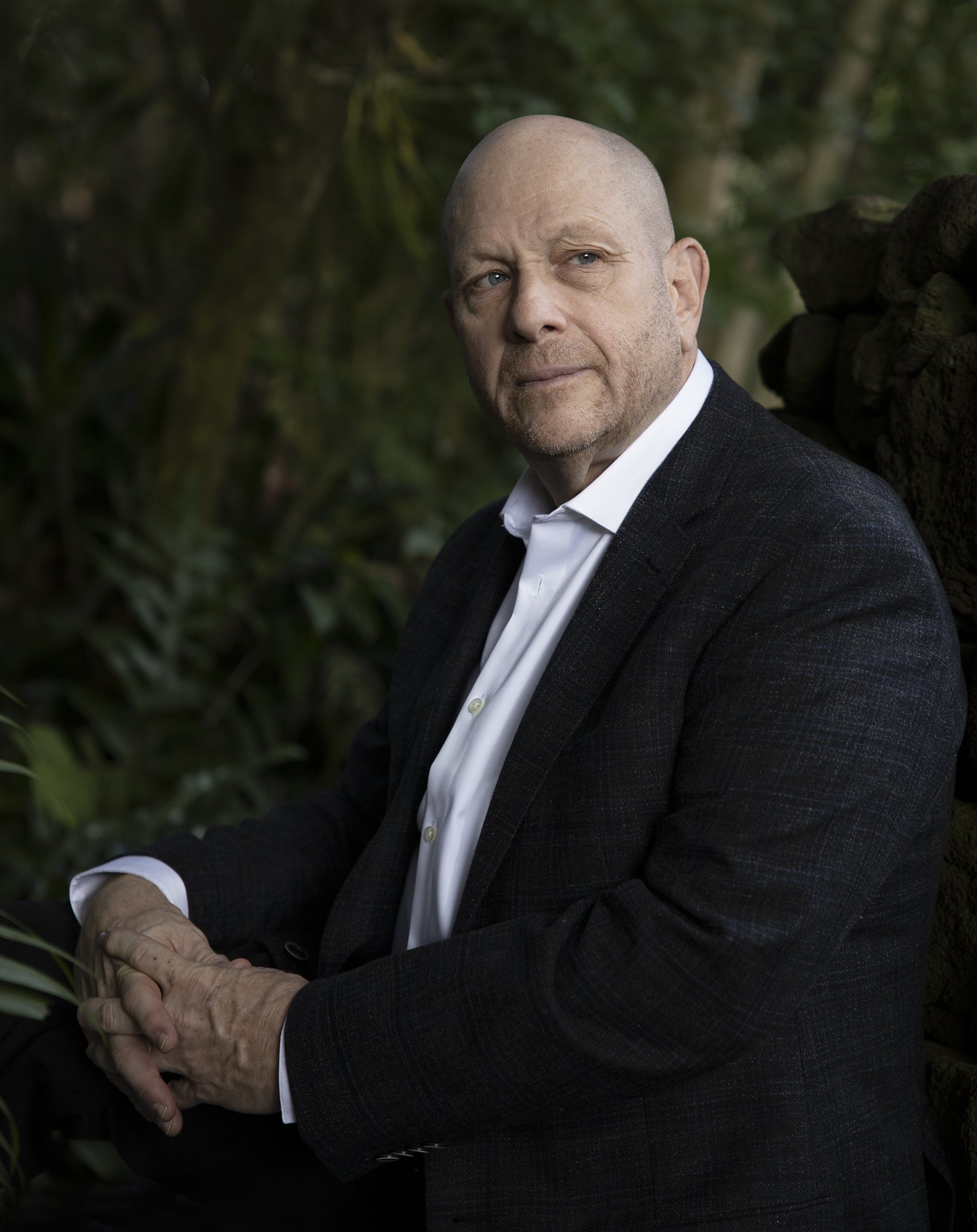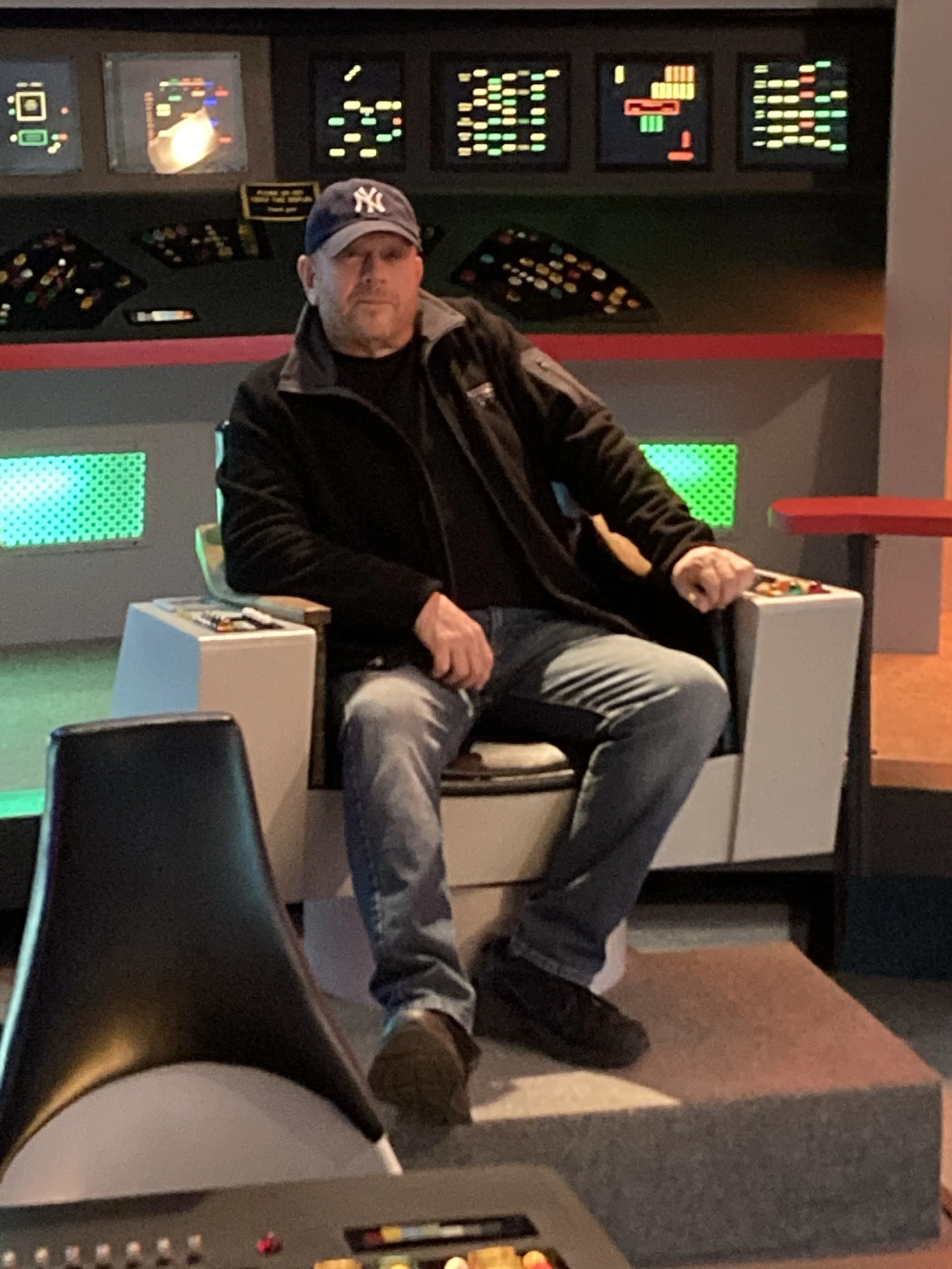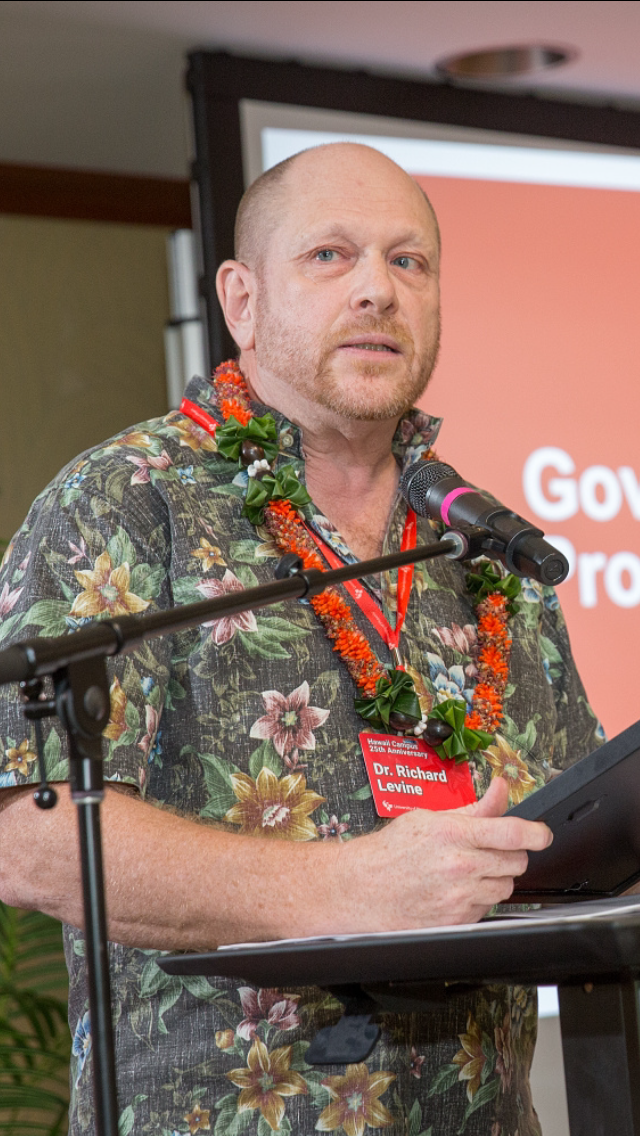Meet Richard I Levine
Richard I Levine is a native New Yorker raised in the shadows of Yankee Stadium. After dabbling in several occupations and a one-year coast to coast wanderlust trip, this one-time auxiliary police officer, volunteer fireman, bartender, and store manager returned to school to become a chiropractor. A twenty-three-year cancer survivor, he's a strong advocate for the natural healing arts. Levine has four Indy-published novels known as the Ray Silver Tetralogy, and his fifth work, To Catch The Setting Sun, is published by The Wild Rose Press and was released in August 2022.
In 2006 he wrote, produced and was on-air personality of the Dr. Rich Levine show on Seattle's KKNW 1150AM and after a twenty-five year practice in Bellevue, Washington, he closed up shop in 2017 and moved to Oahu to pursue a dream of acting and being on Hawaii 5-O. While briefly working as a ghostwriter/community liaison for a local Honolulu City Councilmember and a Hawaii State Senator, he appeared as a background actor in over twenty-five 5-Os and Magnum P.Is. Richard can be seen in his first co-star role in the Magnum P.I. third season episode "Easy Money". He continues to hone his acting skills with Robert Zimmerman and Peter Allas of Z/A Studios while simultaneously working on his next novel.
Q & A with Author/Blogger Jana Richards
Q: Where did you get the idea for your new novel
A: It was a confluence of several separate, yet simultaneous, sensory experiences that triggered images which ignited the creative foundation for this story. Please allow me to explain. In 2018 I was on my way to the set of a Hawaii 5-O episode where I was cast as a background NCIS agent. On the way to set I mentally became this agent—giving him a name, a history, habits etc. I pictured him being uncomfortably hot while driving to an investigation because his car air-conditioner didn’t work. So, I shut mine off, rolled down the windows which caused a blast of hot air to rush in along with the smell of a trash pile left along the roadside. Then I began to play some music from the John Dumas CD Kohola Dreamtime and HPD detective Hank Benjamin came to life. After several weeks of repeating this ritual while in the car, a story began to develop and I knew I had my next novel.
Q: What was the most difficult thing about writing this book?
A: Constant interruptions from work or personal obligations, to neighbors engaged in noisy home remodeling projects or playing loud music to all hours of the night. It was extremely hard and frustrating to find uninterrupted quiet time.
Q: Did you always want to be a writer?
A: From the time I was a small child, I had always found it difficult to verbally express my thoughts and feelings. I was never one of those people who had the ability to fire off a quick retort in the heat of the moment. The perfect response to any situation would always come to me hours later. Writing always came easy. It was a natural and an enjoyable path to travel; an easy way to transform my daydreams into a world that others can experience.
Q: Do you have any words of advice to beginning writers?
A: When I write, I literally do it for myself. It’s my entertainment. I’m the creator and the critic. The end result just happens to be a story, a novel, and a world that never existed until it developed in and moved out from the deep recesses of my brain. I never worry about an idea that comes to me at an inopportune time. If it’s a good idea, I’ll remember it. If I don’t, well, there will always be more to come. I never try to force a paragraph, a sentence, or a word, and you shouldn’t either. If the inspiration isn’t there, go do something else. If you try to force it, you’ll close down the innate pathways to the imagination and become frustrated. Just remember that If it doesn’t flow naturally, allow yourself to step away. Most important, don’t doubt yourself and don’t rush to get the approval of others. Believe that you are a creative genius. Do allow your imagination to sail across the cosmos with reckless abandon and understand that everything you put down on paper is not chiseled in stone.
Q: What’s your favorite thing about being a writer?
A: Playing God. Seriously, getting to create and develop my characters and the world where they live.
Q: What’s your least favorite thing about being a writer?
A: Playing God. While writing my previous four books, there were characters that I had developed a fondness for and never anticipated their demise when they were first created. In each instance, I had to pause for several days to reconcile the inevitable; I was that attached! After I had convinced myself it had to be done, I actually grieved over their passing. Sounds crazy, yes?
Q: Do You have any pets? What do you like best about your pet.
A: I’ve always been a cat person. Found my first one when I was eight. My current kitty is an all-black (salt and pepper now) stray who is approximately twenty years old. Buddy is more like a lap-dog who follows me around the house. He’s the most vocal cat I’ve ever owned; constantly calling out to be fed, brushed, or to join him on the couch for TV time.
Q: What genre is your favorite to read?
A: I love history, especially late 18th century America. So both historical fiction and non-fiction piques my interest. I loved David McCullough’s John Adams. If I could go back in time, I would love to live in colonial Boston, New York, or Philadelphia.
Q: Name two authors we might find you reading when taking a break from your own writing?
A: When I was in high school, I was impressed with Ernest Hemingway and had always fantasized living in Key West with a bunch of polydactyl kitties and smoking Cuban cigars while pounding the keys of an old cast iron Royal typewriter.
I also have an affinity for the 1930s-1940s. I love old Bogart and Cagney films, so it makes sense that another author on my to-read list is Dashiell Hammett. In the future, I can see myself writing a noir detective novel.
Q: What are two (or more) of your all-time favorite books in any genre?
A: The first would have to be the George R. Stewart sci-fi classic Earth Abides. Written in the 1950s the story follows introvert Isherwood Williams who, thanks to the venom from a rattlesnake bite, survived a world-wide viral epidemic that wipes out most of humanity. Stewart’s masterful prose easily transports me into the protagonist’s shoes. Oddly, given the state of our world today, I find this story a tad prophetic of what can still occur.
The second book would have to be McCullough’s biopic on John Adams
Q: What do you like best about your hero in To Catch The Setting Sun?
A: I like Detective Henry Benjamin’s integrity; his moral compass. He’s a flawed individual, he has his faults and weaknesses which he recognizes and is determined to overcome. Still, he’s honest and faithful.
Q: What do you like best about your heroine in To Catch The Setting Sun?
A: There are a couple of heroines in this story. My female leads are strong, independent, and intelligent. Not all are honest, but nonetheless, they can hold their own in any situation and can kick a little butt when necessary.
Q: How can readers reach you or find you online?
A: I can be found on my Amazon author page, On Twitter @Your_In8_Power, and my Facebook author page Richard I Levine—fiction novelist.
Q: If I was a first-time reader of your books, which one would you recommend I start with and why?
A: I would definitely begin with my newest work because it’s “hot of the presses” as they say. I wouldn’t deter anyone from my earlier work which are the four novels of the Ray Silver action adventure series. While each book can be read as a stand-alone, just know that where one book ends, the next book begins.


